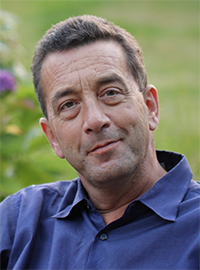RECONCILE
RECONCILE
- Recirculation of waste products in organic farming – consumer credibility and ecosystem health
If the production in organic farming is to be maintained and potentially increased while the use of fertilizer and straw from conventional farming is phased out, it is necessary to find alternative fertilizer products from the surrounding society (industries and cities). These products contain essential nutrients and the reuse of those will contribute to reaching a sustainable circular economy but can also contain some potentially problematic substances e.g., microplastic and heavy metals.
Fra City/Industry to Farm Area
RECONCILE investigates central soil- and ecosystem health effects of recirculation, and on that basis, it is investigated how consumer opinions on recirculation from the surrounding society to organic farming, including different ways of communicating about recirculation, affects consumer opinions.
The project will summarize the acquired knowledge in cooperation with organic farming stakeholders and prepare a report with recommendations that can be used in the further work on recirculation within organic farming.
Purpose of RECONCILE
RECONCILE maps the scope of harmful effects on the soil’s ecosystem by recirculation of e.g., sewage sludge, composted household waste and human urine through experimental studies, and literature studies.
The soil has a very diverse food web of microorganisms (bacteria, fungi, protozoa, and nematodes) that are essential for the fertility as they perform several eco-system services e.g., decomposition of organic matter, mineralization of nutrients, and maintaining the soil’s structure. Therefore, it is important that these organisms – and the processes they perform – are not negatively affected.
RECONCILE will, among other things, use Copenhagen University’s (UCPH) long-standing project “CRUCIAL” which has applied human urine, sewage sludge, and composted household waste for 20 years in moderate (urine), high, and very high amounts (sewage sludge and compost) - corresponding to more than 100 years of operation have been added. RECONCILE will map the scope of pollution by microplastic and heavy metals in CRUCIAL and investigate whether the types of fertilizer have influenced the soil’s food web.
With this as a starting point 1) qualitative studies will be conducted of consumers’ understanding and possible worries in regard to recirculation, which creates the basis for 2) quantitative studies of a large number of consumers’ opinion on recirculation.
THE PROJECT STEP BY STEP |
Investigate the scope of microplastic and heavy metal pollution in CRUCIAL – UCPH’s long-standing field study on recirculation (application of 20 years’ worth of human urine corresponding to more than 100 years’ worth of composted household waste and sewage sludge) |
Evaluate the effect of alternative forms of fertilizer on the soil’s food web in the CRUCIAL study |
Perform laboratory tests that measure the effect of microplastic on selected soil organisms |
Study the Rhizobium bacteria’s nitrogen fixation ability in the CRUCIAL treatments |
Perform qualitative and quantitative consumer studies that map consumers’ opinions on recirculation |
Project period: 2020-2023
Project leader
Jakob Magid
Department of Plant and Environmental Sciences, University of Copenhagen
jma@plen.ku.dk
Phone: +45 35 33 34 91

Project partners
- Annemette Palmqvist, Department of Science and Environment, Roskilde University
- Mette Vestergård, Institut for Agroøkologi - Entomology and Plant Pathology, Aarhus University
- Sinne Smed, Department of Food and Ressource Economics, University of Copenhagen
- Lars Gårn Hansen, Department of Food and Ressource Economics, University of Copenhagen
- Nina Preus, Danish Agriculture & Food Council
- Cecilia Logo-Koefoed, Danish Agriculture & Food Council
- Jesper Liengaard Johansen, Department of Plant and Environmental Sciences, University of Copenhagen
- Myles Oelofse, Department of Plant and Environmental Sciences, University of Copenhagen